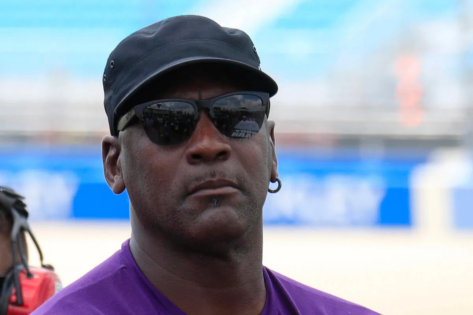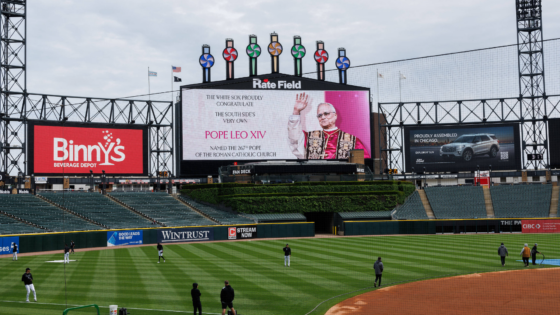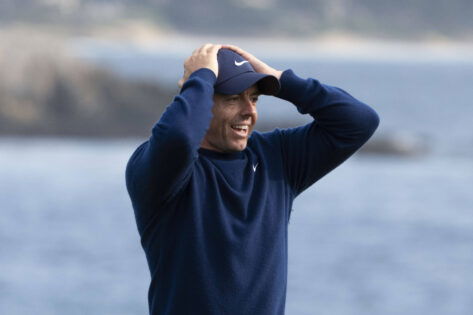When Michael Jordan and Denny Hamlin took up the mantle against NASCAR, little did fans there was something big brewing. At the heart of the dispute is NASCAR’s charter system, a franchise-like structure introduced in 2016 that guarantees teams a spot in every Cup Series race and a share of revenue. The high-octane world of NASCAR has been rocked by a legal battle that’s as dramatic as anything on the racetrack. And there’s a new development, with Jordan’s lawyers making allegations against NASCAR once again.
Well, let’s go back to the beginning. Jordan and his partners allege that this system unfairly restricts competition and keeps teams tied to NASCAR’s terms, tracks, and suppliers, calling the France family “monopolistic bullies.” The lawsuit has escalated into a personal and public feud, with both sides trading sharp accusations and legal maneuvers. As the trial looms, the stakes for the future of the sport and its power structure have never been higher.
23XI Racing and Front Row Motorsports are pushing back against NASCAR’s amended countersuit, calling the latest legal arguments unsubstantiated and rooted in mischaracterized evidence. The two teams, which originally filed an antitrust lawsuit against NASCAR over the charter system, are now asking Judge Kenneth D. Bell of the Western District of North Carolina to dismiss NASCAR’s updated claims entirely.
Following this, in a filing from last Friday, the teams argued against NASCAR’s new allegations. They say, “NASCAR’s new allegations cherry-pick quotes from documents produced in discovery in which the chartered teams discussed trying to maintain unity in the joint negotiations in which NASCAR agreed to participate.” Essentially, NASCAR had argued the 15 Racing Team Alliance teams were in violation of the antitrust law in jointly negotiating the charter agreement.
They added, “None of the new allegations in NASCAR’s amended counterclaim fix this legal deficiency,” the response states, claiming that the discussions among teams were simply about maintaining unity during negotiations—a process NASCAR had voluntarily agreed to back in 2016 and again during the current charter talks.
One key element in NASCAR’s countersuit is the accusation of an illegal group boycott attempt. Specifically, the claim that teams tried to boycott the 2024 Daytona 500 qualifying races. But 23XI and Front Row argue there’s no real evidence of a conspiracy, especially involving Front Row. They state, “Merely participating in a trade association like the RTA, or in its joint negotiations voluntarily agreed to by NASCAR, is not sufficient to show that Front Row participated in any actionable conspiracy.”
NASCAR had also claimed that the teams’ collective bargaining forced them to offer “supracompetitive prices” in the new 2025 Charter Agreement. But 23XI and Front Row pointed out that after joint talks collapsed, NASCAR met with teams individually and still got 13 of the 15 to sign on its terms. “NASCAR does not provide a plausible theory… in light of the fact that NASCAR admits that it abandoned the joint negotiations,” they wrote.
This was clear when multiple team-owners spoke about the charter agreement negotiations last year, most prominently, Rick Hendrick and Richard Childress. Mr. H. said at the time, “I think we worked really hard for two years and it got down to, you’re not going to make everybody happy. And I think it got down to, I was just tired.” Meanwhile, Richard Childress had this to say, “6:37 is when it came in, and we had to sign by 12:00, or we lose our charters. I didn’t have a choice because we had to sign. I got over 400 Employees, OEM in contract, contracts with sponsors, and I gotta take care of my team.”
The filing also emphasized that joint negotiations are not inherently illegal, even among competitive teams, especially when those negotiations are voluntarily entered into by both sides. Ultimately, 23XI and Front Row are rejecting the amended countersuit as baseless and are urging the court to throw it out.
This update is just on the heels of an amicus curae brief, which aims to represent groups not a party to the case, but who provided additional information they want considered in the ruling. Submitted on behalf of 13 racing teams not party to the case, the 125 page brief represents their perspective, particularly about not being able to join the lawsuit because they have signed the charter agreement.
While it all unfolds in the courtroom, it’s important to see how the lawsuit can change the course of NASCAR.
How the lawsuit could change NASCAR for teams, sponsors, and fans
The antitrust lawsuit filed by 23XI Racing and Front Row Motorsports has already sent shockwaves through NASCAR. At stake is the future of the charter system, which guarantees teams a spot in every Cup Series race and a share of revenue. If the appellate court overturns the current injunction, 23XI and Front Row could lose their charters. This will force them to compete as open teams. This would create uncertainty for their operations, sponsorships, and long-term planning.
Sponsors are closely watching the case. Many want assurances that teams will remain chartered, as this guarantees visibility and value for their investments. The uncertainty has already made it harder for teams to secure long-term deals. If the charter system is struck down or changed, the sponsorship landscape could shift dramatically.
For NASCAR, a ruling against the current system could force a major overhaul. The league might have to open up the sport to more teams, reducing barriers to entry and increasing competition. This could make NASCAR more dynamic, but it could also disrupt the stability that charters provide.
Fans are also affected. Judge Kenneth Bell noted, “NASCAR fans (and members of the public who may become fans) have an interest in watching all the teams compete with their best drivers and most competitive teams.” If top teams or drivers leave due to legal uncertainty, it could impact the quality of racing and the sport’s popularity.
The outcome of this lawsuit could set a precedent for other sports using franchise or charter models. As the case moves through the courts, everyone involved, teams, sponsors, and fans, faces a period of uncertainty. The ripple effects could reshape NASCAR for years to come.
The post NASCAR Lawsuit: Michael Jordan’s Lawyers Further Accuse France Family Amidst Defending Their Partners appeared first on EssentiallySports.



